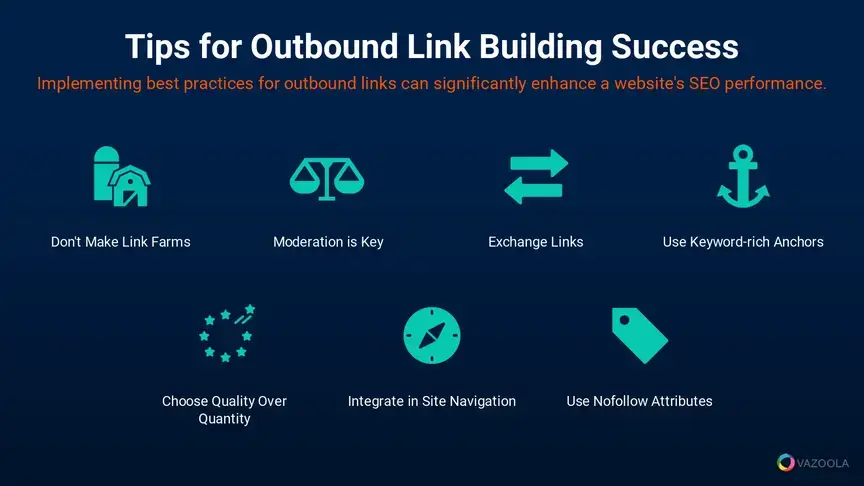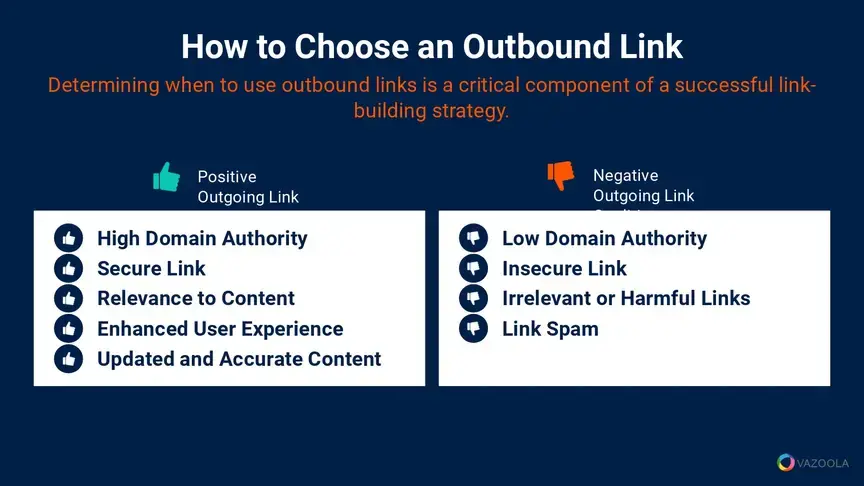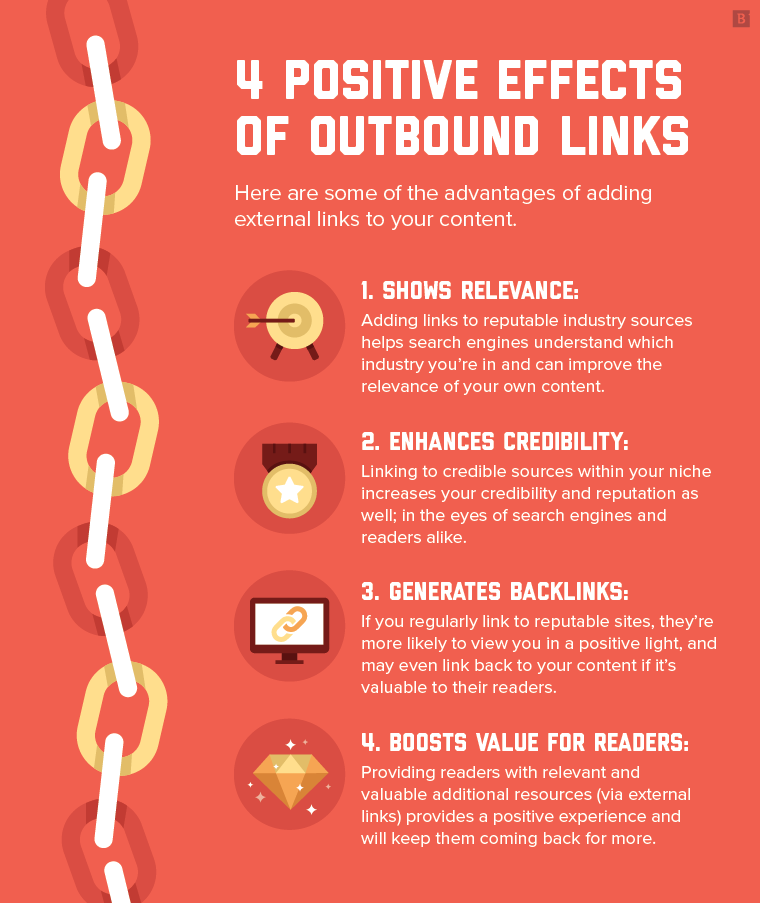Uncover the secret to optimizing your external links for maximum impact and SEO benefits with these best practices revealed.

Image courtesy of via DALL-E 3
Table of Contents
Welcome to our guide on outbound links and external linking! In this article, we will explore what outbound links are and why they are crucial for web content. If you’ve ever wondered about the importance of linking to other websites, you’re in the right place. Let’s dive in and learn more about this essential aspect of website optimization.
What Are Outbound Links?
Outbound links, also known as external links, are hyperlinks on a webpage that direct users to another website. These links are like virtual pathways that connect different webpages on the vast world wide web. Just like highways lead you to different destinations, outbound links navigate users to various online sources of information.
Why Are Outbound Links Important?
Outbound links play a vital role in establishing credibility and authority for a website. By linking to reputable sources, websites can demonstrate their commitment to providing valuable and reliable information. Additionally, outbound links can improve a website’s visibility in search engine results, driving more traffic to the site. So, incorporating outbound links in web content is a smart strategy for enhancing the overall user experience and optimizing website performance. Let’s continue exploring the world of outbound links to see how they can benefit your online presence!
Step 1: Understanding Outbound Links
Definition of Outbound Links
Outbound links are like pathways on the internet that lead you from one website to another. Imagine them as doors that take you from one room (website) to another. These links are created when you click on a word or a picture on a website that takes you to a different website.
Difference Between Internal and External Links
Internal links are like secret passageways that take you from one room to another within the same website. On the other hand, external links lead you to a completely different house (website) on the internet. Understanding this difference helps you navigate the web more easily.
Benefits of Using Outbound Links
When you include outbound links on your website, it shows that you have done your research and are providing valuable information to your readers. By linking to reputable sources, you are enhancing the credibility of your own content. Just like when your teacher asks you to back up your arguments with evidence in a school project, outbound links serve as evidence that what you are saying is trustworthy and supported by experts in the field.
Enhancing SEO
SEO, which stands for Search Engine Optimization, is like a magical spell that helps your website appear higher in search engine results. Including outbound links in your content can actually boost your SEO. When search engines see that you are linking to relevant and high-quality websites, they view your site as more authoritative and trustworthy, which can improve your ranking. It’s like making friends with popular kids in school – it can boost your reputation!
Increasing Traffic
Imagine you have a lemonade stand in your neighborhood and you tell your friends about it. They come to buy lemonade, but then they tell their friends, who tell their friends, and before you know it, your stand is bustling with customers. The same concept applies to outbound links. When you link to other websites, you are essentially sending traffic their way. Some of those visitors may click back to your site out of curiosity, increasing your own website traffic. It’s like helping each other out in the online world!
Best Practices for External Linking
When it comes to using outbound links in your web content, there are some best practices to keep in mind. Following these guidelines can help you effectively utilize external linking to enhance your website’s credibility and drive more traffic. Here are some key tips:

Image courtesy of www.vazoola.com via Google Images
Link to Relevant and High-Quality Sites
When including outbound links in your content, it’s essential to link to reputable sources that are relevant to your topic. This not only adds credibility to your own website but also provides valuable information to your readers. Make sure the sites you are linking to are trustworthy and offer valuable insights related to your content.
Use Descriptive Anchor Texts
When creating a link, it’s important to use descriptive anchor texts that clearly indicate what the reader can expect when they click on the link. Avoid generic phrases like “click here” and instead use keywords or phrases that accurately describe the content on the linked page. This not only improves the user experience but also helps with SEO by providing relevant context to search engines.
Check Links Regularly
It’s crucial to regularly check the outbound links on your website to ensure they are still active and directing users to the intended destination. Broken links can negatively impact the user experience and hurt your website’s credibility. Utilize tools like link checkers to scan your site for any broken links and fix them promptly to maintain a seamless browsing experience for your visitors.
Common Mistakes and How to Avoid Them
One common mistake when using outbound links is connecting to low-quality websites. These sites may have poor content, spammy elements, or even harmful material. It’s crucial to only link to reputable and trustworthy sources to maintain the credibility of your own website. Before including any outbound links, make sure to thoroughly review the content and reputation of the sites you are linking to.
Don’t Overuse Outbound Links
Another mistake to avoid is overloading your content with too many outbound links. While outbound links can be beneficial for SEO and credibility, having an excessive amount can overwhelm your readers and distract them from the main purpose of your content. It’s important to strike a balance and only include relevant links that truly add value to your readers. Prioritize quality over quantity when incorporating outbound links into your web content.
Tools for Managing Outbound Links
As you continue to create and maintain outbound links on your website, it’s essential to have the right tools to help you manage them effectively. These tools can streamline the process and ensure that your links are always in good working order. Let’s explore some of the most useful tools for managing outbound links.

Image courtesy of www.vazoola.com via Google Images
Link Checkers
Link checkers are tools specifically designed to scan your website for broken or non-functional links. These tools crawl through your site, identifying any links that are no longer active or lead to error pages. By regularly running a link checker on your website, you can promptly fix any broken links, ensuring a smooth user experience for your visitors.
SEO Tools
Search Engine Optimization (SEO) tools can be incredibly helpful when it comes to managing outbound links. These tools provide insights into your linking strategy, helping you optimize your links for better search engine rankings. Additionally, SEO tools can analyze the quality of the websites you are linking to, ensuring that you are connecting with reputable and relevant sources.
Examples of Good Outbound Linking
Imagine you are reading an article about space travel, and the author mentions a scientific study that proves a point. They provide a link to the actual study so you can read it yourself. This is an example of good outbound linking. By linking to credible sources like scientific studies, the author is showing that their information is reliable and trustworthy. This type of linking helps to build credibility with the readers and adds value to the content.
Example 2: Using Descriptive Anchor Texts
Now, let’s say you are browsing a recipe blog, and you come across a link that says “click here for more baking tips.” This link takes you to a page with lots of helpful baking tips. This is an example of using descriptive anchor texts in outbound linking. Instead of using generic phrases like “click here,” the link text gives you a clear idea of what to expect when you click on it. This makes the user experience better and helps with search engine optimization.
Conclusion
Throughout this article, we’ve delved into the world of outbound links and their importance in web content. By now, you should have a solid understanding of what outbound links are, why they matter, and how to use them effectively to benefit your website.

Image courtesy of www.brafton.com via Google Images
Remember, outbound links can help improve your website’s credibility, enhance its search engine optimization, and drive more traffic to your pages. By following best practices such as linking to relevant and high-quality sites, using descriptive anchor texts, and regularly checking your links, you can ensure that your outbound linking strategy is on point.
Additionally, it’s crucial to steer clear of common mistakes like linking to low-quality sites and overusing outbound links. By avoiding these pitfalls, you can maintain a positive user experience for your visitors and maintain the integrity of your website.
Lastly, utilizing tools like link checkers and SEO tools can streamline the management of your outbound links, making it easier to monitor and optimize your linking strategy.
In conclusion, incorporating outbound links into your web content can significantly benefit your website in terms of credibility, SEO, and traffic. By following the guidelines and best practices outlined in this article, you’ll be well-equipped to harness the power of outbound links and take your website to the next level.
Want to turn these SEO insights into real results? Seorocket is an all-in-one AI SEO solution that uses the power of AI to analyze your competition and craft high-ranking content.
Seorocket offers a suite of powerful tools, including a Keyword Researcher to find the most profitable keywords, an AI Writer to generate unique and Google-friendly content, and an Automatic Publisher to schedule and publish your content directly to your website. Plus, you’ll get real-time performance tracking so you can see exactly what’s working and make adjustments as needed.
Stop just reading about SEO – take action with Seorocket and skyrocket your search rankings today. Sign up for a free trial and see the difference Seorocket can make for your website!
Frequently Asked Questions (FAQs)
What is an outbound link?
An outbound link is a link on a website that directs you to another website. It’s like a signpost that takes you to a different place on the internet.
How do I choose good sites to link to?
When choosing websites to link to, make sure they are reliable and trustworthy. Look for websites that provide valuable information related to your content. It’s important to link to sites that are respected in their field to maintain credibility.
Why should I check my links regularly?
Regularly checking your links is crucial to ensure that they are still working properly. If a link is broken or leads to a page that no longer exists, it can negatively impact the user experience on your website. By checking your links regularly, you can maintain a seamless browsing experience for your visitors.







